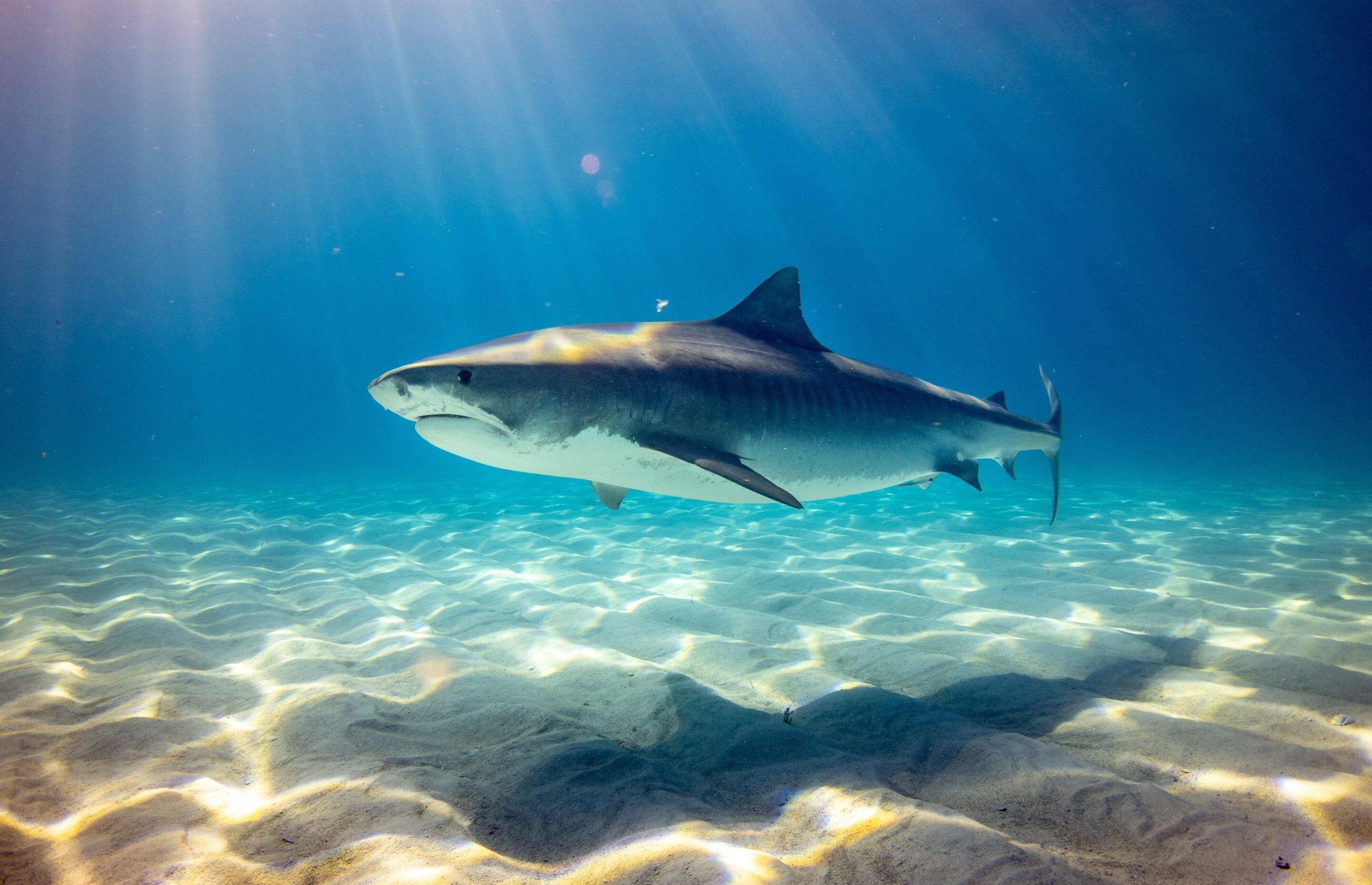Credit: Unsplash/CC0 Public Domain
Videos of shark attacks are popular—some of Discovery’s “Shark Week” videos of sharks attacking cages or people have attracted millions of views online. But according to a new study from North Carolina State University, positive videos of sharks could help change people’s attitudes in the predators’ favor.
Published in Animal Conservation, the findings from the new study indicate more positive YouTube videos could be a useful tool for shark conservation. Ocean shark and ray populations have declined 71% since 1970, primarily due to overfishing, according to a recently published study in Nature.
“We need to find ways to protect these important species—they help regulate oceanic food webs and influence prey dynamics,” said the study’s lead author Justin Beall, a graduate student at NC State. “Popular representations of sharks are that they are dangerous animals that seek out opportunities to harm humans. Think of the movie ‘Jaws,’ for example. We need to explore ways to foster human tolerance of sharks, a key component of their conservation.”
Previous research has shown that online videos can help build support for wolves, another carnivorous animal. The NC State researchers wanted to see if YouTube could have the same impact for sharks.
“There are other species in decline due to illegal hunting, such as tigers and elephants, but the difference is that many people around the world support protection of tigers and elephants,” said study co-author Lincoln Larson, associate professor of parks, recreation and tourism management at NC State. “They’re charismatic, cute and not widely perceived as major threats to humans. But that same level of support is not there for sharks. We wanted to explore ways to build tolerance for much-maligned species like sharks, too.”
To learn more about how videos impact people’s attitudes, acceptance and intentions to help conserve sharks, researchers surveyed 335 people before and after they watched a series of videos on YouTube.
Participants either watched a series of “positive” videos showing non-aggressive shark behavior or clips revealing scientific information about them. In comparison, the “negative” videos included clips of shark bites or attacks.
Before and after watching the videos, researchers asked participants to respond to a series of questions to gauge their attitudes, acceptance and intentions toward sharks. Participants ranked their responses on a seven-point scale from strongly disagree (-3) to strongly agree (3).
After watching videos of sharks behaving violently, study participants had more negative attitudes about sharks on average, less acceptance and they said they were more likely to oppose shark conservation and recovery efforts. Participants’ average attitudes toward sharks declined 25% after watching negative videos, their acceptance decreased 18%, and their intentions declined 3%.
On the other hand, study participants who watched positive videos of sharks had more positive attitudes about sharks on average, greater acceptance and they reported greater intentions to help sharks. After watching positive videos, participants’ average attitude score increased 70%, their average acceptance score increased 130% and their intentions to support shark conservation increased 46%.
Researchers said the positive videos were more powerful than the negative videos since participants displayed greater increases in average attitudes, acceptance and intentions for conservation.
“Wildlife agencies and other organizations communicating about wildlife should investigate using YouTube for the conservation of multiple species, and especially for large, carnivorous species that often struggle to gain public support,” Beall said.
The biggest challenge, the researchers pointed out, is that despite the potential benefits of positive videos, many of the “negative” videos had more views.
“How do we get people to look at the good clips?” said study co-author M. Nils Peterson, professor in the NC State Fisheries, Wildlife and Conservation Biology program. “Many people are into the entertainment value of ‘Shark Week,’ but not many people go to the beach and say, ‘I wish we could see more sharks.’ How do we leverage people’s enthusiasm for shark conservation?”
Monster shark movies harm shark conservation efforts More information: J. M. Beall et al, The influence of YouTube videos on human tolerance of sharks, Animal Conservation (2022). DOI: 10.1111/acv.12808 Provided by North Carolina State University
Citation: How ‘Shark Week’ could inspire love for ocean predators (2022, July 21) retrieved 25 July 2022 from https://phys.org/news/2022-07-shark-week-ocean-predators.html
This document is subject to copyright. Apart from any fair dealing for the purpose of private study or research, no part may be reproduced without the written permission. The content is provided for information purposes only.
































